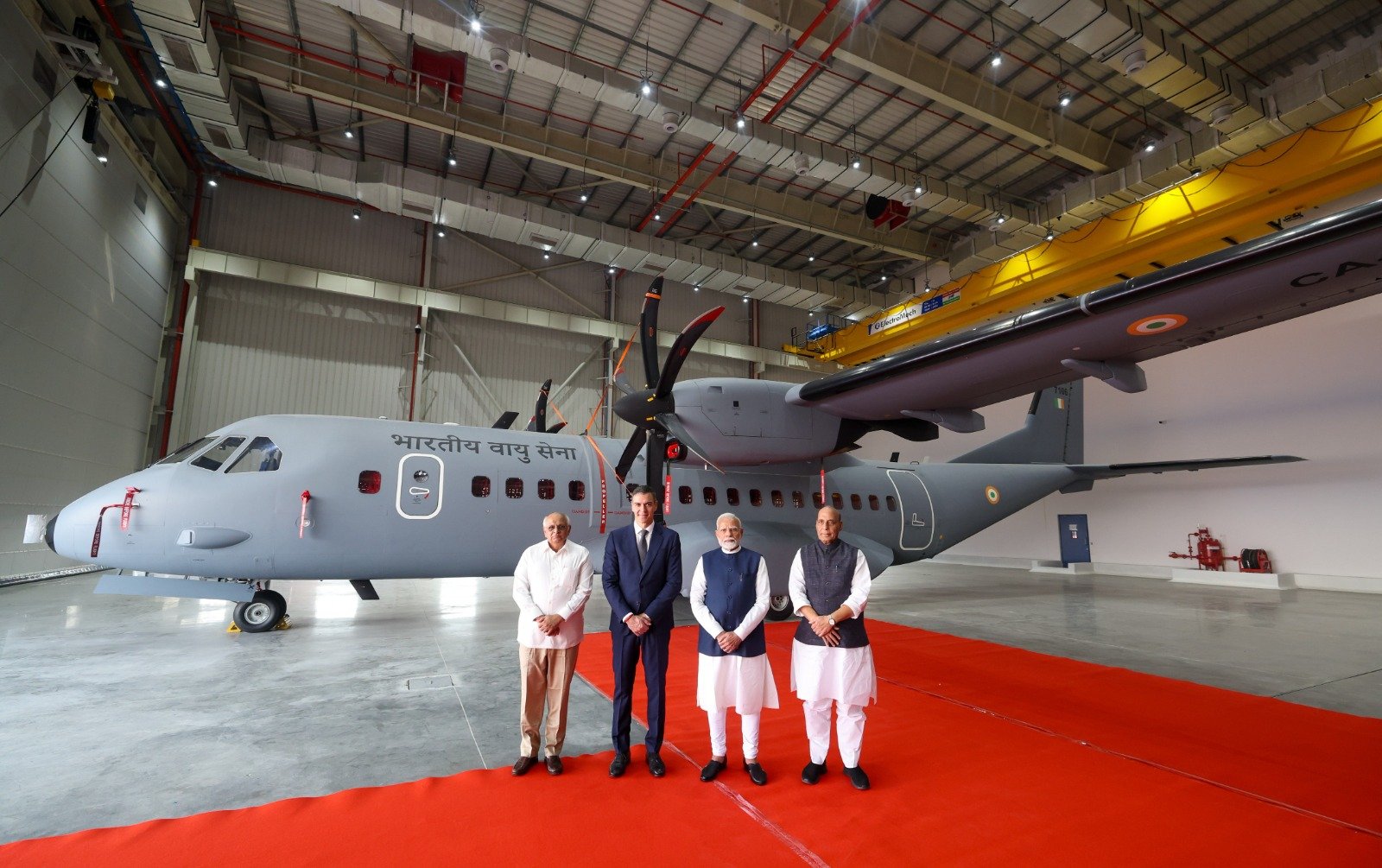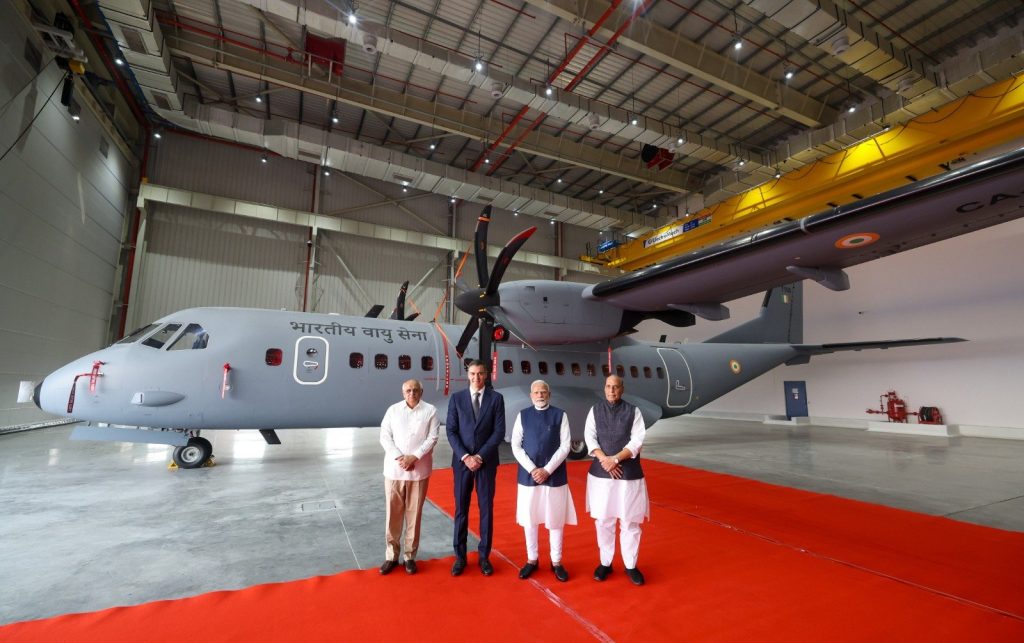
VADODARA: Prime Minister Narendra Modi and his Spanish counterpart Pedro Sanchez on Monday inaugurated the Tata Aircraft Complex in Vadodara, a facility which marks India’s first private venture dedicated to the production of military aircraft, specifically the Airbus C295.
During the inauguration, Modi highlighted the strengthening partnership between India and Spain, stating this project is a vital step in the ‘Make in India, Make for the World’ initiative.

He extended his best wishes to the teams at Airbus and Tata, while also paying tribute to the late industrialist Ratan Tata for his contributions.
The Airbus C295, designed and initially manufactured by the Spanish aerospace firm CASA, which is part of Airbus Defence and Space, is a medium tactical transport aircraft capable of performing a variety of roles, including medical evacuations, disaster response, and maritime patrol missions.
Under the C295 programme, a total of 56 aircraft are to be delivered, with 16 being supplied directly by Airbus from Spain and the remaining 40 manufactured in India by Tata Advanced Systems Ltd, according to an official release.
Modi and Sanchez toured an exhibition set up for the launch, where Modi showcased the factory as a representation of the new work culture in India.
He pointed out that the facility, whose foundation stone was laid in October 2022, exemplifies the country’s rapid progress from idea conception to execution.
The Prime Minister emphasised the government’s commitment to eliminating delays in project planning and execution, recalling his experience with the establishment of the Bombardier train coach manufacturing facility in Vadodara during his tenure as Gujarat’s Chief Minister.
He expressed confidence that, similar to the success of the Bombardier facility, the Tata Aircraft Complex will also facilitate exports.
Quoting Spanish poet Antonio Machado, Modi said “As we start treading towards the goal, the path towards the goal is created automatically,” and highlighted the proactive nature of India’s current trajectory in defence manufacturing.
The Prime Minister noted the significant transformation within India’s defence sector over the past decade, stating that without decisive actions taken ten years ago, reaching this milestone would have been unimaginable.
A decade ago, when he assumed the top office, the priority and identity of defence manufacturing was about import and no one could imagine that defence manufacturing could take place on such a large scale in India, Modi noted.
“Our government decided to walk on a new path and set new goals for India, whose results are evident today,” he maintained.
Modi reiterated the government’s focus on establishing a new identity for defence manufacturing that prioritises domestic production over imports.
The Prime Minister stressed the importance of job creation and skill development associated with the Tata-Airbus factory, which is expected to generate thousands of employment opportunities.
The facility will support the indigenous manufacturing of 18,000 aircraft parts, creating vast opportunities for Micro, Small, and Medium Enterprises (MSMEs) across the nation.
India, now one of the largest suppliers of aircraft components to global manufacturers, stands to benefit significantly from the new facility, which Modi believes will foster innovation and new industries within the country.
Highlighting the remarkable growth of India’s aviation sector over the past decade, Modi stated that the government is enhancing air connectivity to hundreds of small cities while working towards positioning India as a hub for aviation and Maintenance, Repair, and Overhaul (MRO) services.
He noted that various Indian airlines have ordered 1,200 new aircraft, with the newly inaugurated factory set to play a key role in designing and manufacturing civil planes for domestic and international markets.
Modi also paid tribute to Father Carlos Valles, a Spanish-Indian Jesuit priest who lived in India for over 50 years and made significant contributions to education and culture, including authoring numerous books on mathematics in Gujarati.
The Indian government honoured him with the Padma Shri, the fourth highest civilian award, for his impactful work. (PTI)

